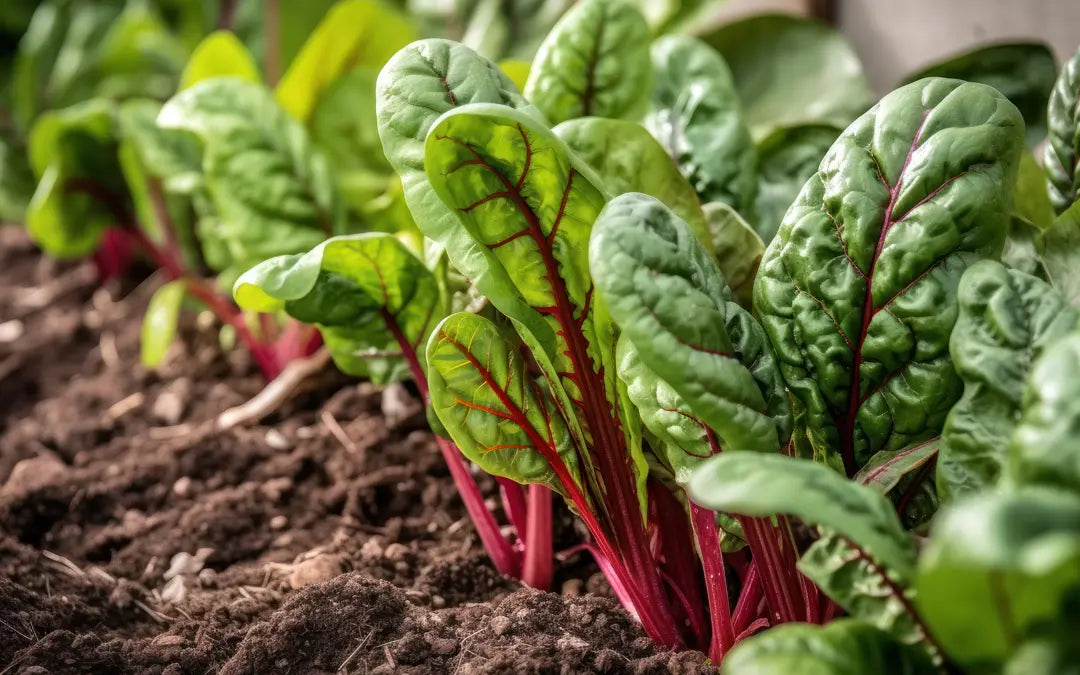
When soil is nutrient depleted, can we get all our nutrients from food?
By Mia Rigden Board-certified nutritionist, classically trained chef
What makes a carrot full of calcium and carotenoids, kale rich in folate and manganese, and nuts and seeds powerful sources of magnesium? The soil from which these plants grow imparts its nutrients. Without healthy, nutrient-rich soil, we don’t have nutrient-rich crops. Understanding where our nutrients come from and how to optimize and supplement our nutrient intake is key to so many aspects of our health, from building a strong immune system and managing the body’s stress response to maintaining bone density, hormonal balance, and mental health throughout the lifetime. Sadly, many modern agricultural practices — including monocropping, pesticide use, lack of crop rotation, and over-irrigation — prioritize yield over health and can degrade the nutrients in the soil. Nutrient loss in soil can damage human health in four major ways.
1. Nutrient Status
Evidence from a wealth of research confirms fruits and vegetables have fewer nutrients now than in the past. This degradation can cause a variety of nutrient-related health problems, while also leaving us with fewer defenses against chronic disease. A 2004 study looked at nutrient quality in 43 popular crops since 1950 and found a significant decline in key nutrients like calcium, iron, and vitamin C. And this was almost 20 years ago! The nutrient quality of our crops plays a massive role in our health.
We assume our spinach is rich in iron vitamins A, C, and K, but is it? That depends on the soil that grew the spinach in that particular bag. It may look like dirt, but there’s a whole ecosystem of microorganisms under the earth that help break down matter into bioavailable nutrients that plants can easily absorb. Plants and humans share essential micronutrients, including magnesium, calcium, potassium, zinc, iron, and copper. Without adequate levels of nutrients, neither plants nor humans can function optimally.
Magnesium, for example, is found in nuts, seeds, legumes, and many grains. This essential mineral is involved in more than 300 biological processes in the body, ranging from muscle and nerve function, blood sugar control, and bone remodeling. A gradual depletion of magnesium in the soil has led to human deficiencies, and now an estimated 50% of the population has inadequate magnesium levels.
2. Microbiome and Gut Health
Our nutrient status and the quality of the crops we eat can affect our microbiome and gut health as vitamins and minerals are vital to the digestive process. B vitamins, for example, play a huge role in creating a diverse and rich microbiome. Without adequate nutrients from the soil, our gut health suffers. Beyond micronutrients, poor soil quality can affect the fiber content in crops. Fiber is not digested; it serves as a prebiotic to feed the healthy bacteria in the gut and assists the digestive process. In addition to nutrients that might be lacking in our soil, pesticides and chemicals used in agriculture can harm the beneficial bacteria and disrupt the delicate balance in the microbiome.
3. Toxin Exposure
Industrial practices, mining, and chemical use can cause heavy metals like lead, mercury, arsenic, and cadmium to accumulate in the soil and the crops that grow from it. Rice, for example, is porous and requires substantial water to grow, making it susceptible to arsenic buildup from contaminated soil and water. Glyphosate, the active ingredient in many pesticides and herbicides, is a major contributor to soil contamination and degradation. It can inhibit the growth of beneficial bacteria in the soil that are integral to health and nutrient diversity.
Glyphosate affects the health and activity of earthworms and other organisms that are involved in nutrient cycling and aerating land, and it can bind to nutrients in the soil, making them less bioavailable to plants. Beyond its impact on the soil and nutrient density of the crops, glyphosate is detrimental to human health, increasing our need to support our body’s natural detoxification processes with supplements like alpha lipoic acid, glutathione, and vitamin C.
4. Climate Change
Agricultural practices are a major contributor to climate change, which is starting to play a bigger role in our daily lives and our health. Common practices, including conventional tillage (which uses mechanical tools to prepare land for crops) increases carbon dioxide, nitrous oxide, and methane released from soil. Healthy soil is more efficient at sequestering carbon and reducing greenhouse gas emissions as well as retaining moisture, which reduces risk of droughts and makes the land more resilient to the impacts of climate change. Sustainable agricultural practices that prioritize soil health are crucial for ensuring adequate nutrition and food security. It’s not all gloom and doom though. Movements like Regenerative Farming (check out the Regenerative Organic Alliance to learn more) are working to restore the health of the soil for current and future generations.
So, what can you do? You should still aim to eat an abundance and variety of plants, but be mindful of these inadequacies and supplement appropriately. When you can, buy organic and local to ensure you’re getting the most nutrition and the fewest toxins in your produce. If your area has a farmers market or CSA (community supported agriculture), get involved and learn where your food comes from.
Mia Rigden is a Los Angeles-based board certified nutritionist, trained chef, and the author of The Well Journal (2020) and Foodwise (2023), a comprehensive, encouraging guide to healthy eating with 100 original, nutritionally-balanced and flavor-enriching recipes. Learn more about working with Mia on her website, check out an online course, and follow on Instagram @mia_rigden for science-backed, practical nutrition advice.

